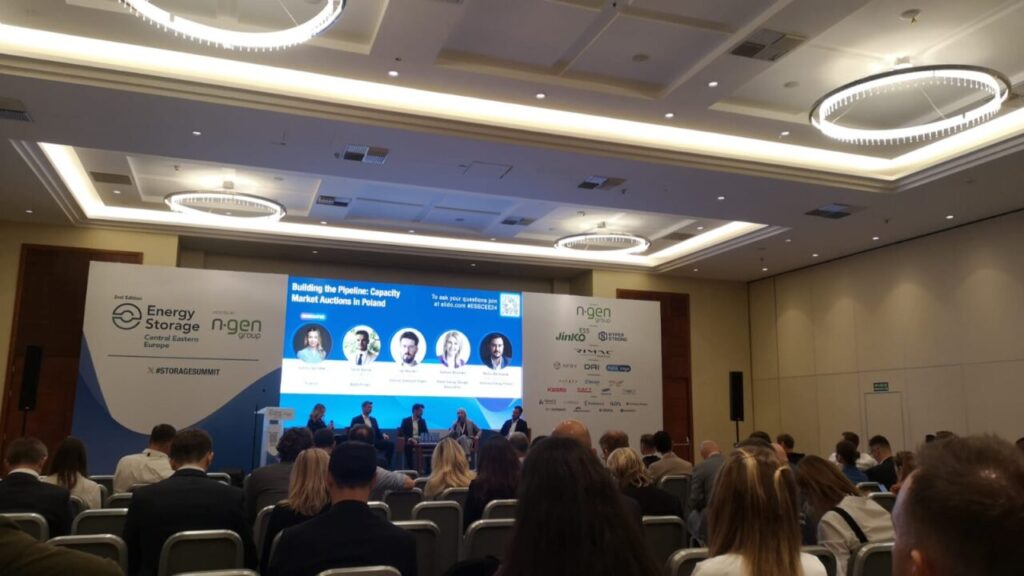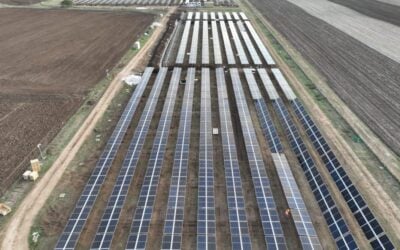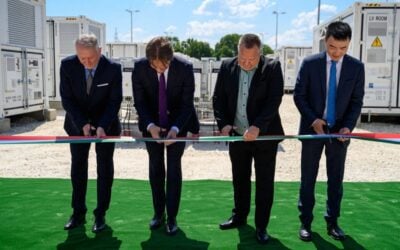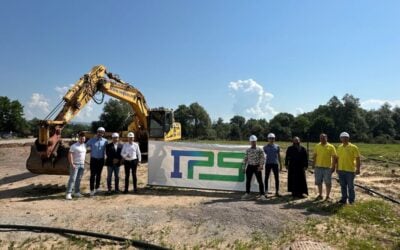
The decision to slash energy storage de-rating factors for the next capacity market auction in Poland will not be the death knell of the market, and may actually have some positives, according to project developers and IPPs.
That was the takeaway from the ‘Building the Pipeline: Capacity Market Auctions in Poland’ panel discussion at Solar Media’s Energy Storage Summit Central and Eastern Europe (CEE) 2024 today.
Enjoy 12 months of exclusive analysis
- Regular insight and analysis of the industry’s biggest developments
- In-depth interviews with the industry’s leading figures
- Annual digital subscription to the PV Tech Power journal
- Discounts on Solar Media’s portfolio of events, in-person and virtual
The de-rating factor for energy storage bidding into the next capacity market auction in Poland has been slashed from 95% in the last two previous auctions to 61%, Jan Kłoczko, deputy commercial director of independent power producer (IPP) Greenvolt Power said on the panel.
The de-rating factor sets how much of a project’s capacity can be bid in, and differs depending on how reliable the network operator deems a technology is. A 61% factor means a 100MW battery energy storage system (BESS) will only be able to bid in 61MW.
Capacity markets are a growing area for energy storage to play in, with 23GW of projects awarded auctions across Europe, said panel moderator Joanna Spirodek, BESS integrator Fluence’s EMEA marketing manager.
“The lower de-rating is a big change, but it creates an opportunity to think about the future of the project a bit more,” said Daniel Bysiak, country managing director for NGEN, a Slovenia-headquartered IPP and virtual power plant (VPP) operator which has the largest BESS projects in Slovenia, Croatia and Austria.
“The 17-year contracts provided a plan, now we have to think about what to do with the remaining capacity that isn’t in the capacity market. So we see it as an opportunity, not something that is destroying our plans,” he said.
Michal Maćkowiak, executive director of developer Harmony Energy Poland, the local affiliate of the UK developer Harmony Energy, agreed, despite having called the de-rating factor cut a potential “lethal blow” to the market when it was announced in June (initially announced as 57%, rather than 61%).
“It didn’t look good at first but if you do a deep dive it might be a good thing in the end. We believe it will affect the 4-hour systems more than 2-hour ones though,” Maćkowiak said, acknowledging his company’s choice of 2-hour projects made him a bit biased.
Greenvolt won the bulk of the most recent capacity market auctions contracts awarded to BESS (in late 2023) so Kłoczko’s views on the subject hold weight.
“The transmission system operator (TSO) made it clear they changed the de-rating to put storage on par with gas price-wise. BESS was the marginal technology in the last auction and I think it will again be the marginal technology in this auction. Since the de-rating factor and since the last auction the capex has gone down for BESS,” he said.
Barbara Adamska, president of the trade body Polish Energy Storage Association (PESA), pointed to another silver lining about the factor cut: “This news about the de-rating factor did bring the industry together with network operators to work out regulations and revenue streams for energy storage.”
Kłoczko agreed: “The co-operation with the TSO has been very good and hurdles have been cleared.”
Poland’s capacity market runs in November/December and contracts are for delivery starting five years out. So the delivery period for last year’s winners, totalling 1.7GW of BESS projects, starts in 2028. That was a near ten-fold increase on the previous year’s total BESS capacity awarded. However, they are only set to run two more times, in 2024 and 2025, with another mechanism to follow thereafter, Adamska pointed out.






